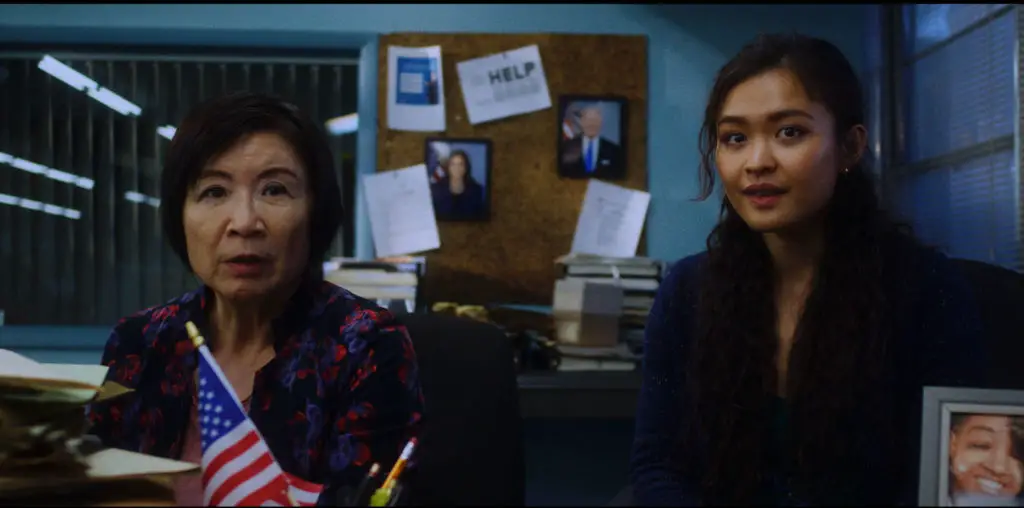
Everyone reacts to the death of a loved one in his or her own way, but in the make-believe world of cinema, one false move spells the difference between eccentricity and horror.
In his newest 9-minute flick, Golden, Filmmaker Kjell Kvanbeck creates an interesting study of a 70s-something married couple, named Hank and Maria. The time is the present and, more specifically, Hank and Maria’s wedding anniversary. Hank is fussing diligently in his home workshop, sanding and shining Maria’s wedding ring, and then sets off to bring her the ring and a lilac colored sweater. As he passes through the kitchen, and the pantry laden with homemade chocolate chip cookies, Hank sees Maria through an open doorway, slumped precariously on the couch. He stares at her from afar for a moment or two, and then proceeds calmly outside, to mow his lawn.
Hmmm… That’s Hank’s initial reaction to the death of his wife…
What Kvanbeck does next is interesting. He continues to follow the actions and strange reactions of Hank and the lifeless body of Maria, in a series of jump shots. In one scene, we see Maria propped up on the couch, and Hank seated next to her. Hank puts the ring on his wife’s finger, as if it were the first time—and we even see a hint of blood at the tip of Maria’s finger, as Hank struggles with the wedding ring. Intriguingly, this glaring filmmaker-error (After all, how can blood circulate in a cadaver’s finger?) is finely balanced against Maria’s brown-bagged lower lids, and brilliantly lifeless face and body— making the scene look and feel shockingly real.
In other jump cut, Hank is seated at the piano, wearing the lilac sweater he presented to his wife—and in another such cut, both husband and wife are seated at a candle lit dinner table.
While one or two jumps like these are often enough in a feature length movie, and numerous scenes such as these are absolutely inexcusable in even the most experimental of mini-short films, somehow or other we’re willing to forgive Kvanbeck, and accept whatever he sends our way, because of his ability to hold and suspend our attention at all times.
What’s also unique—at least I haven’t seen such a technique since Rod Serling’s very first episode of The Twilight Zone, Where is Everybody?—is that Kvanbeck’s entire movie is comprised of a monologue, delivered by his principal actor, Hank. The fact that this too is so seamlessly enacted, that we don’t believe it the least bit strange, says much about the strength of this 9-minute saga about life.
Even more profound is Kvanbeck’s interest in making a movie about something as infinitesimal as one man’s reaction to the death of his beloved— and the fact that we are compelled to watch the tale from beginning to end, and never once miss the much grander plots of most movies.
So is Golden a film of eccentricity or horror?
Since it’s not my place to answer one way or the other, all I will say, is see the movie and then decide. It’s definitely worth all 9-minutes of your time.
This film was submitted for review through our Submission for Review system. If you have a film you’d like us to see, and we aren’t already looking into it on our own, you too can utilize this service.

Thanks for sharing the news about your upcoming festivals!
Thank you so much for reviewing the film! For any readers interested in seeing the film we have a couple of festivals coming up, Dances with Films in Los Angeles and VisionFest in New York City later in June. We are also updating the site and facebook page with more screening information as we get it! Thank you again!
I agree, and that’s what makes “Golden” such a moving and universal film. This movie is not the least bit melodramatic (a direction it could easily have gone), and feels so real, because of the very simple, human emotion it tackles.
Losing your beloved is surely one of the most profound experiences that can occur in a person’s lifetime.